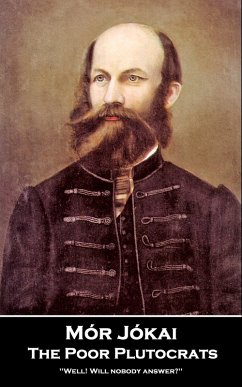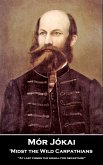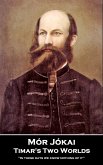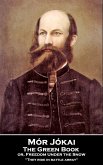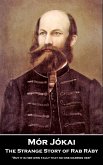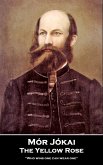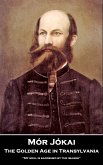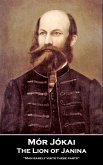Móric Jókay de Ásva was born on the 18th February 1825 in Komárom, then in the Kingdom of Hungary but now part of Slovakia.
Due to his timid and delicate constitution he was educated at home until the age of 10 and then sent away to complete his studies at the Calvinist college at Pápa.
At 12 his father died, and he was pushed to honour him by replicating his career as a lawyer. He studied hard and completed the curriculum at Kecskemét and Pest. He won his first case as a newly graduated lawyer.
But he found a career in law to be dull and, encouraged by the positive reaction to his first play, he moved to Pest in 1845. There he published, first in a newspaper, and then as a novel 'Hétköznapok' ('Working Days'). It was acclaimed as a masterpiece. To add to his promise he was appointed as the editor of Életképek, the leading Hungarian journal.
In 1848 he married the actress, Róza Laborfalvi. That same year Europe was awash with revolutions and Jókai, a moderate Liberal, enthusiastically supported the nationalist cause and its decision to depose the Habsburg dynasty. The attempt failed.
He was now classed as a political suspect and threw himself into his literary career, writing dozens of novels, many of them masterpieces, stories, essays and the like. In total he wrote several hundred volumes, many of them in the local Magyar language which helped arrest its declining relevance in society.
By 1867 the political temperature had cooled, and he entered parliament as well as becoming the editor a government journal he had founded. His skills were much admired and helped the government navigate through several difficult matters.
His wife died in 1886 but although grief-stricken he continued to work and to write.
In 1897 the king appointed him a member of the upper house. Two years later he caused a minor scandal by marrying the young 20-year-old actress, Bella Nagy. At the time he was 74.
Mór Jókai died in Budapest on the 5th May 1904. He was 79.
Due to his timid and delicate constitution he was educated at home until the age of 10 and then sent away to complete his studies at the Calvinist college at Pápa.
At 12 his father died, and he was pushed to honour him by replicating his career as a lawyer. He studied hard and completed the curriculum at Kecskemét and Pest. He won his first case as a newly graduated lawyer.
But he found a career in law to be dull and, encouraged by the positive reaction to his first play, he moved to Pest in 1845. There he published, first in a newspaper, and then as a novel 'Hétköznapok' ('Working Days'). It was acclaimed as a masterpiece. To add to his promise he was appointed as the editor of Életképek, the leading Hungarian journal.
In 1848 he married the actress, Róza Laborfalvi. That same year Europe was awash with revolutions and Jókai, a moderate Liberal, enthusiastically supported the nationalist cause and its decision to depose the Habsburg dynasty. The attempt failed.
He was now classed as a political suspect and threw himself into his literary career, writing dozens of novels, many of them masterpieces, stories, essays and the like. In total he wrote several hundred volumes, many of them in the local Magyar language which helped arrest its declining relevance in society.
By 1867 the political temperature had cooled, and he entered parliament as well as becoming the editor a government journal he had founded. His skills were much admired and helped the government navigate through several difficult matters.
His wife died in 1886 but although grief-stricken he continued to work and to write.
In 1897 the king appointed him a member of the upper house. Two years later he caused a minor scandal by marrying the young 20-year-old actress, Bella Nagy. At the time he was 74.
Mór Jókai died in Budapest on the 5th May 1904. He was 79.
Dieser Download kann aus rechtlichen Gründen nur mit Rechnungsadresse in D ausgeliefert werden.

